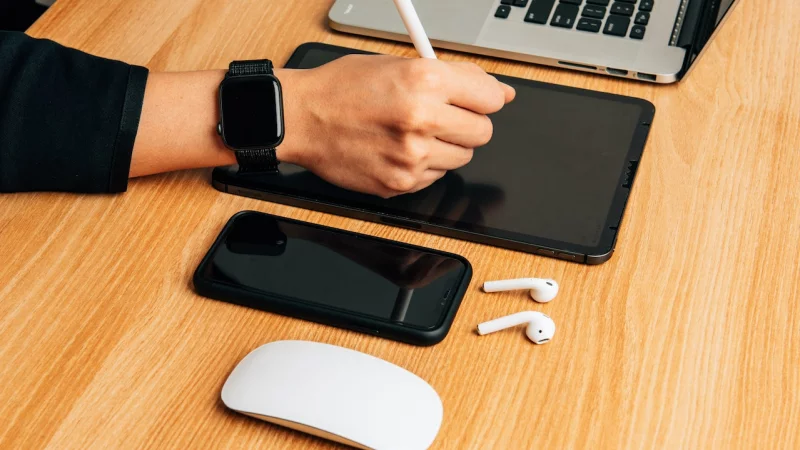
This may sound familiar: you sit down to prepare for an important exam but an hour into your studying you decide to check a video on Youtube. Suddenly you realise that you have spent an hour and a half studying cats reacting to being sprayed with water.
We live in a world where sustained concentration is becoming more difficult and increasingly rare. Gone are the days when you could just sit down and study, with no Skype messages, Facebook notifications, or breaking news alerts contending for your attention. American author Jonathan Franzen famously said that:
It’s doubtful that anyone with an internet connection at his workplace is writing good fiction.
People’s tendency for distraction is higher than ever before because of technology and the unprecedented exposure to information all the time.
Why is multitasking a bad idea?
It is a fact that studying for the GMAT while checking your phone every other minute makes your preparation less efficient. Adam Gazzaley, professor of Neurology, Physiology and Psychiatry, and author of the book ‘The Distracted Mind: Ancient Brains in a High Tech World’, claims that when we switch between tasks, we suffer a degradation of performance that then could impact every aspect of our cognition from our emotional regulation to our decision making to our learning process. Clifford Nass, the Stanford professor known for his research on the way people interact with technology, arrived at the conclusion that people are bad at multitasking because they are actually moving in and out of different tasks quickly, not working simultaneously, and nothing gets enough attention.
If you think that your ability to focus compensates for your tendency to multitask, consider this: filtering distractions is more important that focusing. According to Gazzaley, the highest level of performance while learning is dictated by how well you filter all the irrelevant information. He says that if you process information around you that is irrelevant to your goals, it will create interference.
The negative impact of digital distraction is not just on academic performance. Multitasking also has an emotional and psychological impact, including increased anxiety and stress.
Check out: Top Skills MBA Grads Need for Success
How to tackle digital distraction?
Disconnect
Getting off the Internet can be hard, but it could be the most effective way to make studying more efficient. With no Internet, you don’t run the risk of being tempted by Buzfeed’s ‘39 Overly Adorable Kittens To Brighten Your Day’. The Web can be a great assistant in your work, but it is also an inexhaustible source of entertainment that can throttle your productivity.
Block social media
However, if you need the Internet for your studies, try an app that blocks specific websites, such as AntiSocial or a Google Chrome extension called Block Site. Bear in mind that there is a myriad of other websites that might tempt you, such as the BBC, Netflix, Amazon, etc. Analyse which websites interfere with your studying the most and just block them.
Quit social media
If blocking social media does not do the trick, try quitting, at least for the time until the exam. This step can be particularly hard because social media platforms such as Facebook, Twitter, LinkedIn, Instagram, Snapchat, Google+, Vine, etc. are known to be quite addictive. However, research shows that most people find that living without social media is much easier than they initially expected.
Analog learning
A 2014 Princeton study shows that writing something down by hand is better than typing it on a laptop. People who take notes on computers are transcribing, and people taking notes by hand tend to be choosing more, says Jonathan Zimmerman, a professor at the University of Pennsylvania’s Graduate School of Education. He says that:
An important part of learning is ordering things, and you do that more with note taking.
Schedule study time
You may improve your concentration by planning in advance exactly when and where you’ll spend time doing studying. This could help you prepare mentally for a prolonged period of studying without any kind of digital distraction. You can schedule your study session before your favourite TV show or a football game that you want to watch. Instead of studying for a whole day with numerous planned and unplanned interruptions, try to allot three or four solid hours to a particular task, dedicating it your sustained attention. You can also consider making a to-do list. Lists help prioritise what must be done and when, enabling learners to stay on task during scheduled study sessions.
Exercise
This may sound like a strange piece of advice, but exercise has been credited with significantly improving brain function. A study carried out by the University of British Columbia found that regular aerobic exercise enlarges the hippocampus, the brain area involved in verbal memory and learning. There is plenty of scientific evidence that the parts of the brain that control thinking and memory are bigger in people who exercise versus people who don’t.
Check out: 4 Common Productivity Tips That Are Actually the Worst
Practice self-restraint
No matter how many sites you block or where you hide your smartphone, all the measures you take will be in vain if you don’t have self-control. You may insulate yourself completely from the digital world, but without self-restraint you are bound to lapse into the harmful, distracting habit of checking your Facebook every 10 minutes. And remember, practising self-control will benefit not only your studying but also your life in general. Research at Duckworth Lab at the University of Pennsylvania’s positive psychology centre concluded that the people relying on consistency and grit came out as more successful than those relying on talent.
It is difficult to focus when there is so much technology around us vying for our attention. However, sometimes we have to show character and do what has to be done. Learning to focus and ignore distractions will help us achieve better results in exams, and, ultimately, have better lives in general.


Comments